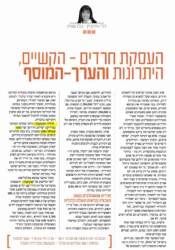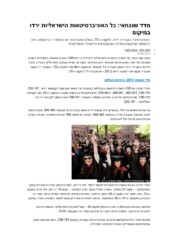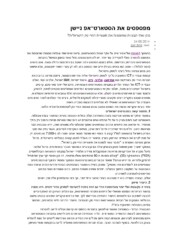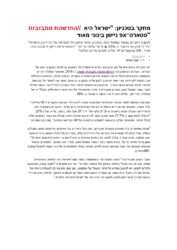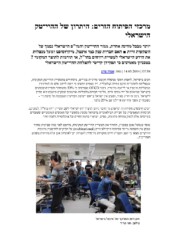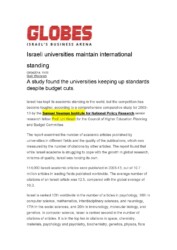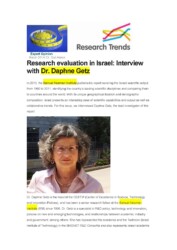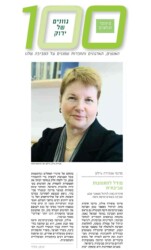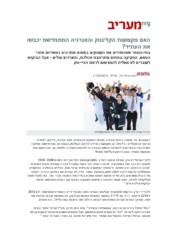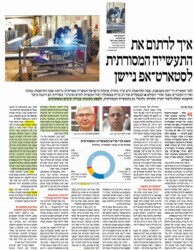Connect to schedule an interview
+972.4.829.2329
Neaman in the media
Haredim Employment – The Difficulties, Benefits and Added Value
Ilia Zatcovetsky
Ilia Zatcovetsky, a research assistant in the project “Haredim integration” of the Samuel Neaman Institute at the Technion, has examined a few studies and data related to earning ability of Haredim, how much money the state transfers to them and how much benefit would come from integrating these Haredim in the job market.
Shanghai Ranking: All Israeli universities dropped in standing
According to a study conducted by the Samuel Neaman Institute at the Technion, in 1991 Israel was ranked first in terms of output of scientific studies, and maintained a high position up to 2003, then began to deteriorate, until in 2001 dropped to 13th place.
Missing the Start-Up Nation
A study by the Samuel Neaman Institute also indicates a growing shortage of engineers. Prof. Shlomo Maital points out an alarming ranking of Israeli students in the international comparative tests (PISA) in math (38th).
Israel is a pretty mediocre startup nation
According to researchers at the Samuel Neaman Institute at the Technion, growth potential exhaustion of Israeli high-tech can catapult the product by 20% ■ Prof. Shlomo Maital: “The Start-Up Nation is a very narrow layer. 9% of workers cannot support an entire country”
Foreign R&D Centers: The Advantage of Israeli high-tech
Vered Gilad, Daphne Getz, Eran Leck
More than in any other country, the Israeli high-tech industry relies on foreign investment. Do major MNCs such as Intel, Microsoft and Google use the IP and knowhow created in their R&D centers in Israel for their own benefit, or do they contribute to the GDP and to the domestic economy? Researchers at the Technion believe that their contribution is critical to the success of the Israeli high – tech and the Israeli economy.
Israeli universities maintain international standing
Israel has kept its academic standing in the world, but the competition has become tougher, according to a comprehensive comparative study for 2003-13 by the Samuel Neaman Institute for National Policy Research senior research fellow Prof. Uri Kirsch.
Research evaluation in Israel: Interview with Dr. Daphne Getz
In 2013, the Samuel Neaman Institute published a report covering the Israeli scientific output from 1990 to 2011, identifying the country’s leading scientific disciplines and comparing them to countries around the world. With its unique geographical location and demographic composition, Israel presents an interesting case of scientific capabilities and output as well as collaborative trends. For this issue, we interviewed Daphne Getz, the lead investigator of this report.
A Model for Environmental Behavior
100 shades of Green is a new initiative by Maariv, which rated the most influential “green” people and organizations in Israel. Prof. Ofira Ayalon, head of environment cluster at SNI and a professor at Haifa University, was elected. Prof. Ayalon is a co-author of reports for the Ministry of Environmental Protection, Ministry of Finance, Ministry of Infrastructure and other government agencies, and has published many articles in the popular and professional media.
Will the professions of cleantech and renewable energy conquer the future?
Prof. Ayalon, a senior researcher at SNI, is also a lecturer and researcher at the University of Haifa. Prof. Ayalon is the head of the Energy Policy and Management at the Department of Natural Resources & Environmental Management. In the article Prof. Ayalon describes the tools given to the students in the program.
How to harness the traditional manufacturing to the startup nation
Alongside the thriving high – tech industry, where innovation is a leading value, operates in Israel widespread traditional industry where innovation is low and employee productivity is lagging behind the world. Enterprises-LOCK in Ashkelon and Lachish Industries and Synergy in Sderot are an example of how innovation can create a global competitive advantage in the traditional industries as well, and provide stable jobs.

